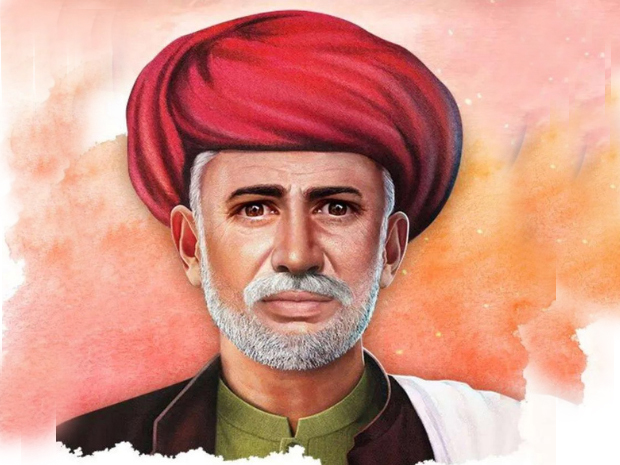- Mines Rescue Station, Dhansar, Dhanbad.
Jyotirao Phule
Indian social reformer and writer
Jyotirao Phule (born April 11, 1827, Bombay Presidency [now Maharashtra], India—departed November 28, 1890, Pune) was an Indian social reformer, prolific writer, and ardent advocate of universal equality, championing the cause of impoverished laborers and women. He emerged as a vocal critic of the entrenched Hindu caste system, an apparatus that categorizes and stratifies individuals based on their birth into specific social groups.
Phule vehemently condemned the systemic discrimination faced by those relegated to the lowest rungs of the caste hierarchy, encompassing the Shudras (artisans and laborers) and the contemporary groups referred to as Scheduled Castes or Dalits. Spearheading a transformative movement in India, he fervently advocated for the establishment of a new social order wherein no one would be subjugated by the upper-caste Brahmans. Phule was equally dedicated to the cause of women’s rights. Recognizing education as a catalyst for societal transformation, he pioneered the establishment of schools tailored for girls and children from marginalized castes.
Early life

Jyotirao Govindrao Phule was born in what is now western Maharashtra state, though the exact location remains uncertain, speculated to be either in or near Pune or in the adjacent Satara district. His name has been transcribed into Latin script in various forms, such as Jyotibha Phule, Jotiba Phule, Jyotirao Phule, or Jotirao Phule; Govindrao is also at times rendered as Govind. Hailing from a family engaged in fruit and vegetable farming, they belonged to the Mali caste within the Shudra social class, the lowest tier in India’s traditional social hierarchy.
Despite being a bright student in his early years, pursuing higher education was unusual for Mali children. Like many of his peers, Phule discontinued his studies at a young age to contribute to the family’s agricultural activities. It was through the intervention of a neighbor that his father was persuaded to allow Phule to attend school. In the 1840s, he enrolled in a secondary school operated by Scottish Christian missionaries in Pune. Phule found inspiration in historical movements and thinkers, including Thomas Paine and his seminal work, Rights of Man (1791). Moreover, he drew influence from movements for independence and anti-slavery campaigns in America, as well as the teachings of Buddha and the mystical poet Kabir.
Equality through education
In 1848, Phule received an invitation to attend the wedding of a friend belonging to an upper-caste Brahman family. During the ceremony, relatives of the bridegroom reportedly subjected Phule to mockery due to his lower-caste background, leading him to depart from the event. This incident is often cited as a pivotal moment that exposed him to the injustices embedded in the caste system, which he argued was an imposition on India by foreign powers. In response, Phule established a groundbreaking school for lower-caste girls in Pune in 1848, a period when female education in India was exceedingly rare. Having educated his wife, Savitribai Phule, at home, she assumed the role of the girls’ school teacher. Over the ensuing years, the Phules founded additional schools for girls and a school catering to individuals from lower castes, particularly the Mahars and Mangs. Despite facing considerable opposition from orthodox Brahmans who accused them of upsetting the social order, Phule and his wife persisted in their efforts toward socioeconomic and gender equality.
Phule actively opposed the practice of child marriage and advocated for the right of widows to remarry, a stance particularly contentious among high-caste Hindus. He established a residence for widows, especially Brahmans, who had become pregnant, along with an orphanage for their children. Phule and his wife later adopted one of these orphaned children.
In 1873, Phule initiated a reformative society named Satyashodhak Samaj, translating to the “Society of Truth Seekers.” The society aimed to champion social equality, unite and uplift Shudras and other lower-caste individuals, and address the socioeconomic disparities perpetuated by the caste system. Advocating for education and challenging traditional norms, Satyashodhak Samaj encouraged weddings without Brahman priests. Phule explicitly extended an open invitation to individuals of all social classes to join the society, emphasizing a common experience of oppression within the Brahman-dominated caste hierarchy. While predominantly comprising non-Brahman castes, Satyashodhak Samaj welcomed members from diverse religious traditions, including Brahmans. As a symbolic gesture of inclusivity, Phule opened his personal water well for the use of all, and he warmly welcomed individuals from every social stratum into his home.
To disseminate his progressive ideas, Phule engaged in prolific writing, producing books, essays, poems, and plays. Among his notable works is the book “Gulamagiri” (Slavery), published in 1873. This influential piece critiques India’s caste system, drawing parallels between the marginalized lower castes and enslaved individuals in the United States.
Death and legacy
In 1888, Phule was bestowed with the title Mahatma, signifying “Great Soul” in Sanskrit. Unfortunately, he experienced a debilitating stroke in the same year, rendering him paralyzed. His life came to an end in 1890 in Pune.
Phule’s impactful work and prolific writings continued to serve as a wellspring of inspiration for subsequent movements advocating caste reform in India. Notably, Dalit leader Bhimrao Ramji Ambedkar drew inspiration from Phule’s legacy, contributing to ongoing endeavors aimed at eradicating the discriminatory ramifications of the caste system in contemporary India. Today, Phule’s enduring influence persists as a guiding force in the pursuit of social justice and equality.


